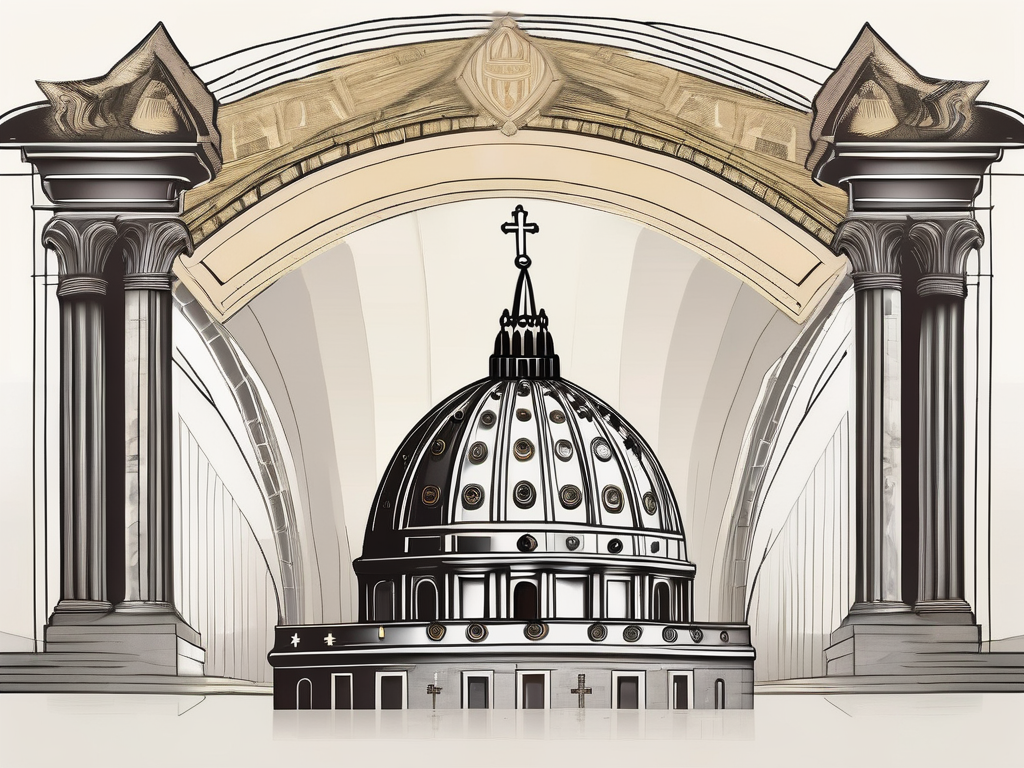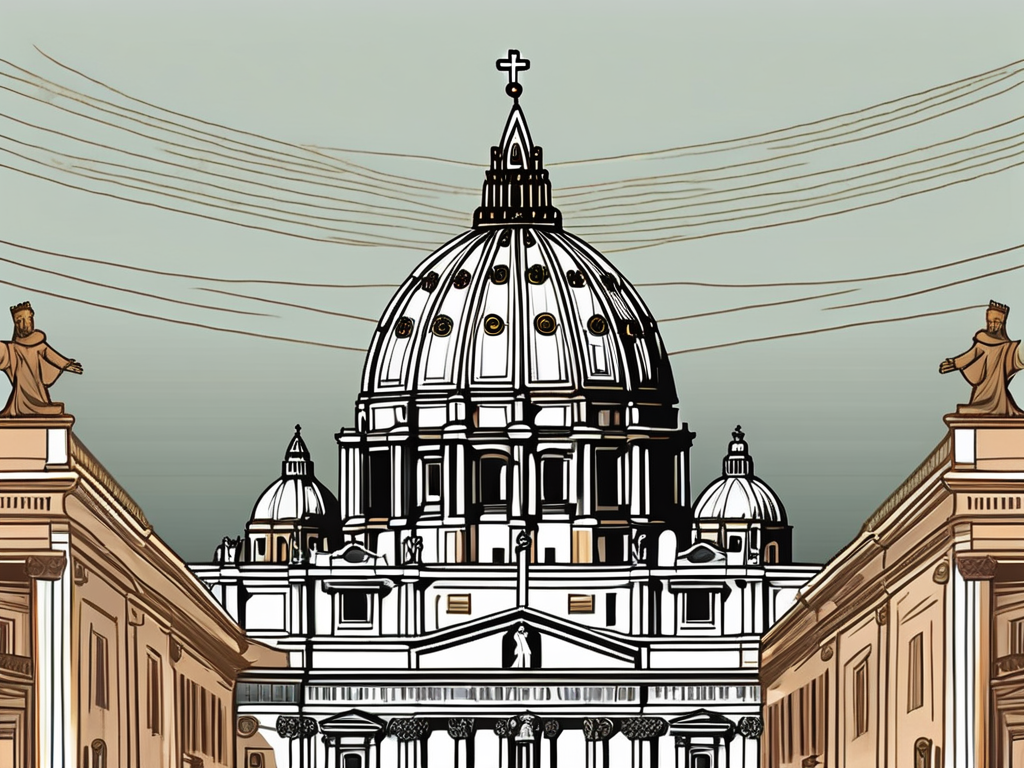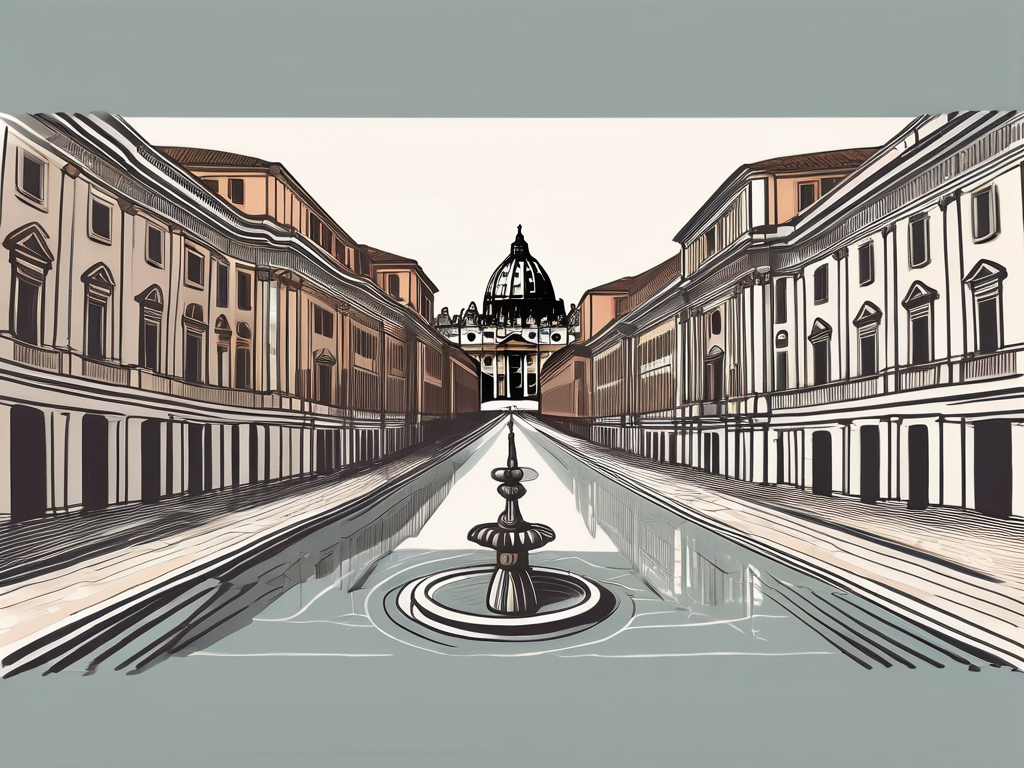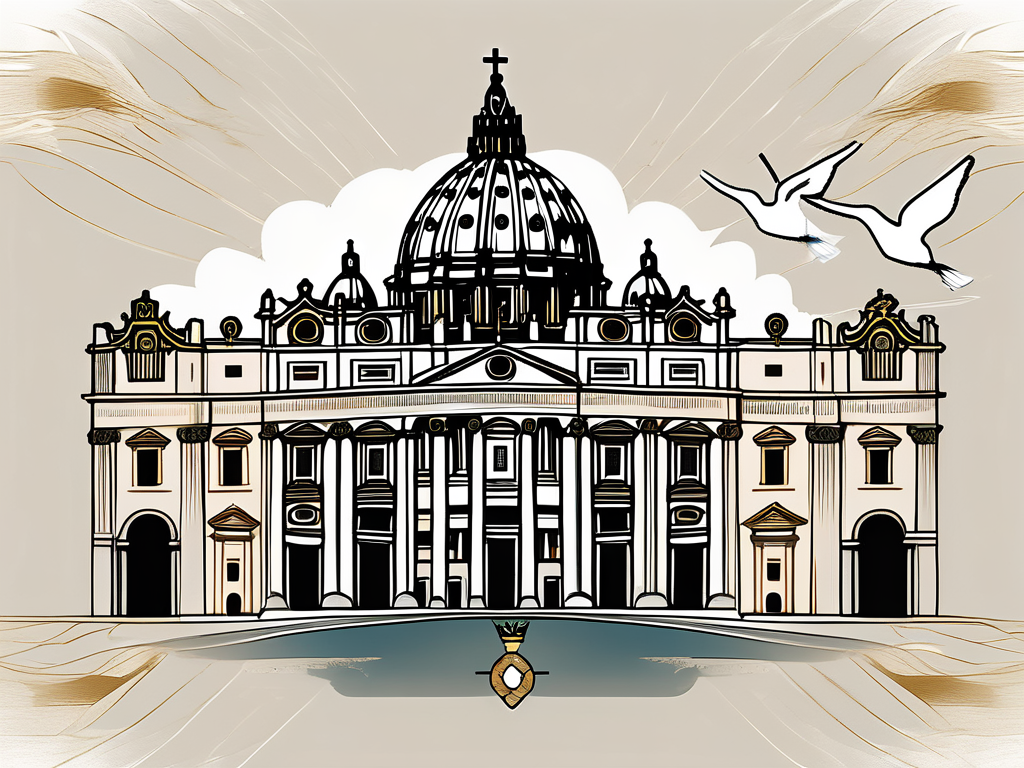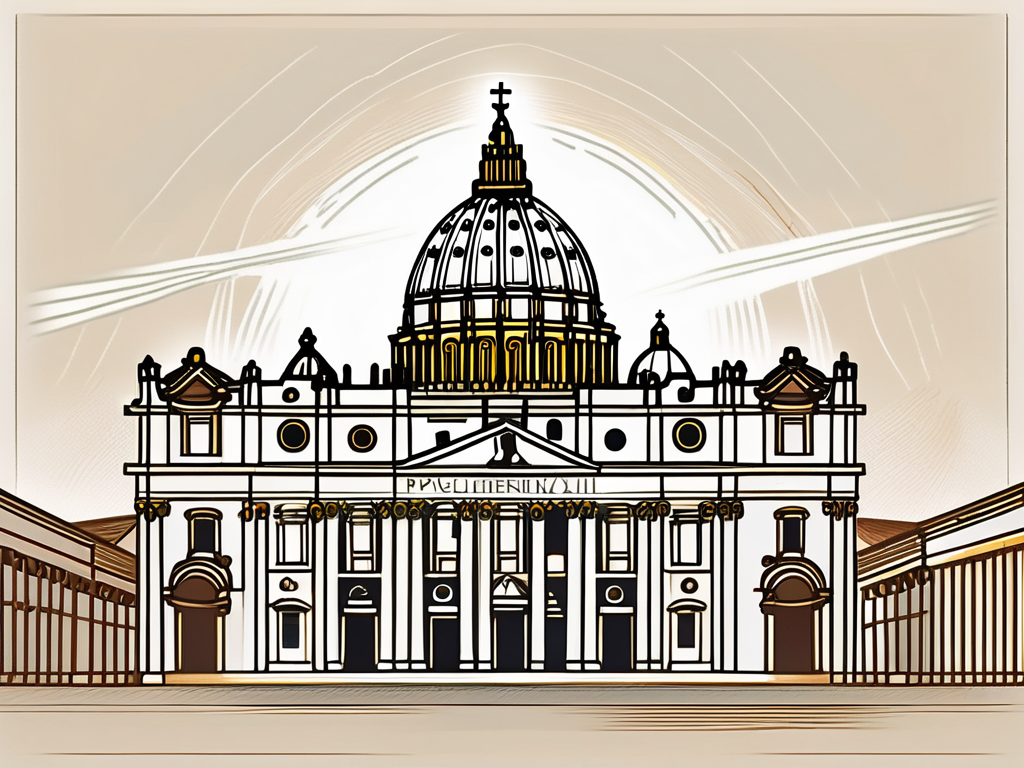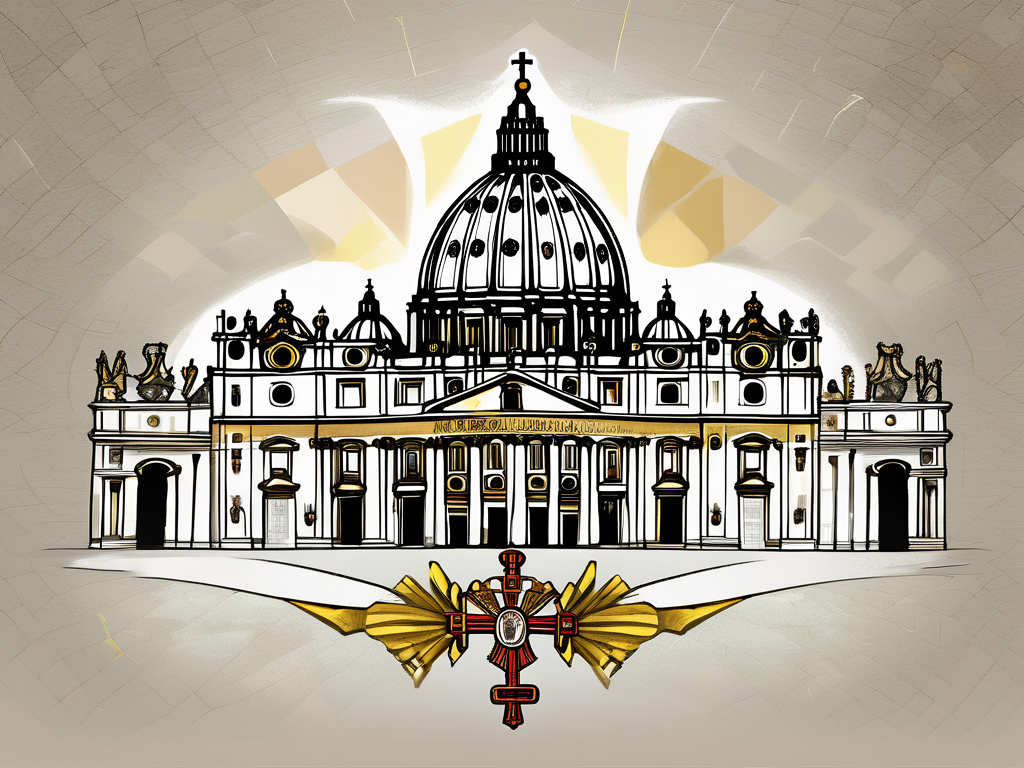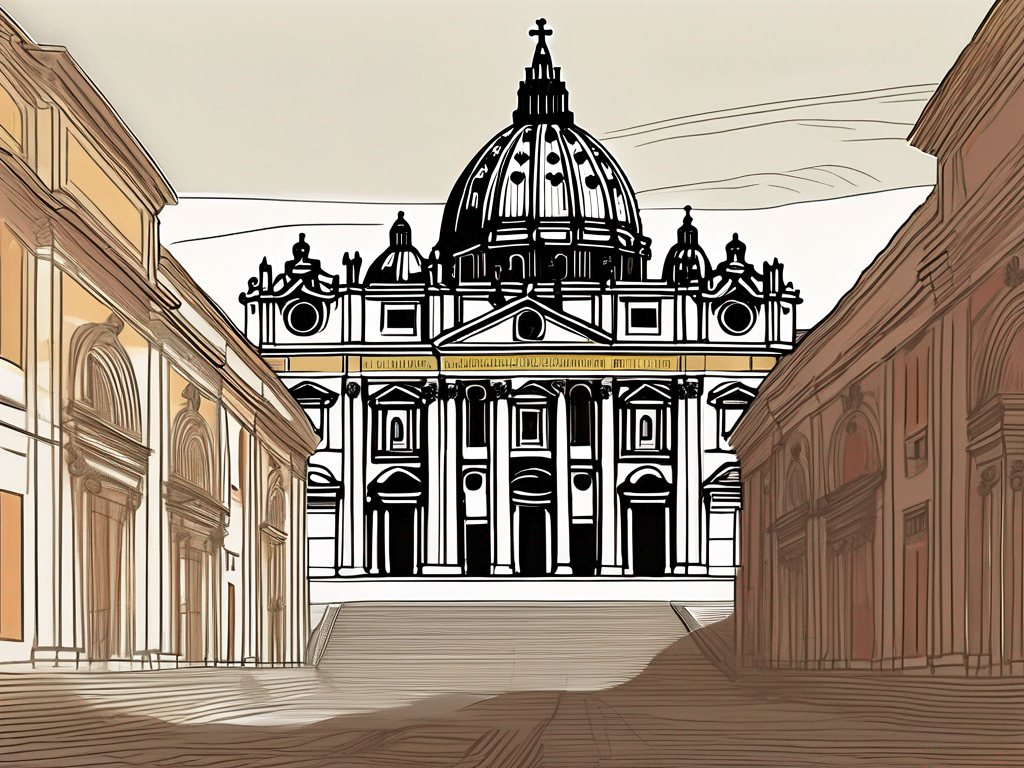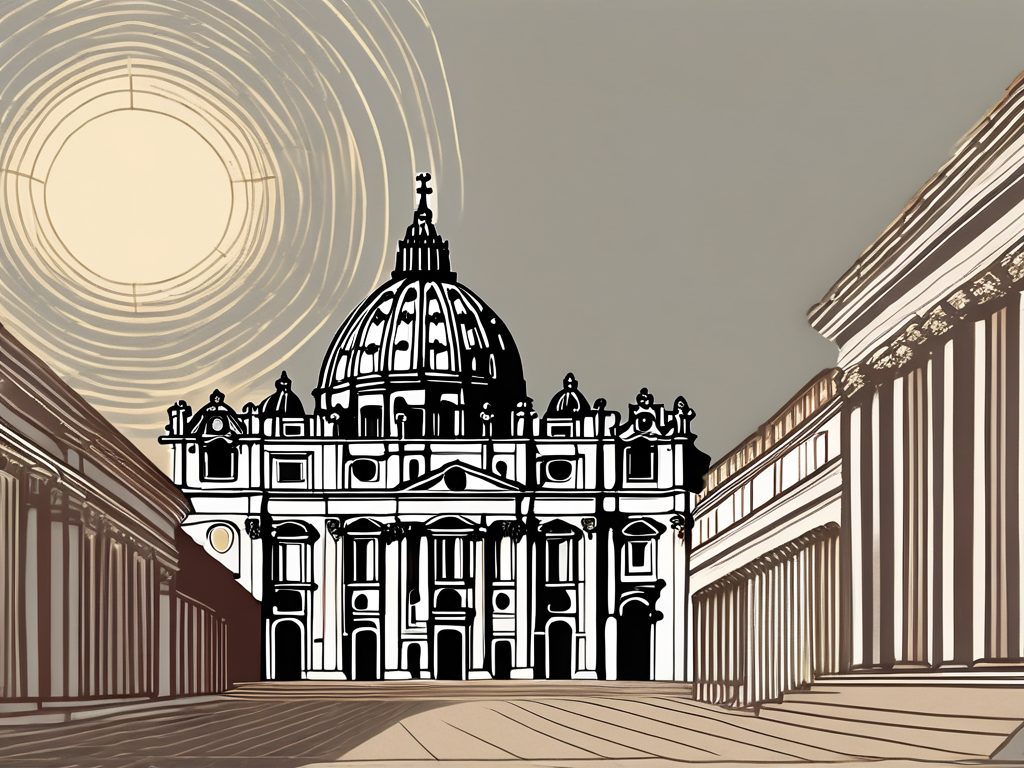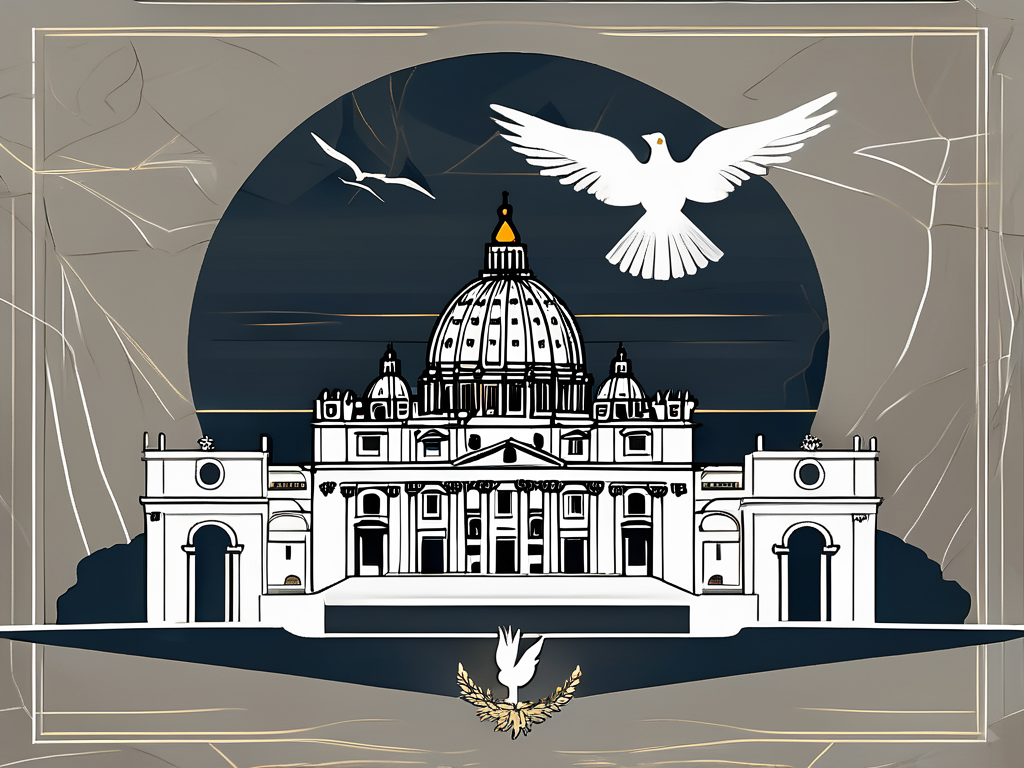Pope Clement I, also known as Saint Clement, holds a significant place in the history of the Catholic Church. His life and teachings have had a lasting impact on the development of Christian theology and the papacy as an institution. Let’s explore the early life, papacy, major contributions, controversies, and lasting legacy of Pope Clement I.
Early Life and Education of Pope Clement I
Pope Clement I was born in Rome and came from a noble family with strong Christian roots. His birth and family background provided him with the foundation for his spiritual journey. As a young boy, he received religious education and was exposed to the teachings of the early Christian leaders.
Throughout his education, Clement I dedicated himself to studying scripture and deepening his knowledge of Christian teachings. He had a passion for theology and a desire to contribute to the growth of the Church.
Birth and Family Background
Clement I was born into a family that had embraced Christianity during its early years. Growing up in a devout Christian household shaped his worldview and set the stage for his future endeavors. His family’s commitment to their faith laid the foundation for his own spiritual journey.
His parents, devout Christians themselves, instilled in him a deep sense of faith and a strong moral compass. They taught him the importance of love, compassion, and service to others, values that would guide him throughout his life.
Being part of a noble family, Clement I was exposed to the political and social dynamics of Rome from a young age. He witnessed firsthand the power struggles and challenges faced by the early Christian community in a predominantly pagan society. These experiences would later shape his leadership style and his commitment to promoting unity within the Church.
Religious Education and Early Influences
As a young boy, Clement I received a comprehensive religious education. He was exposed to the teachings of the apostles and other prominent figures in the early Christian community. These early influences played a crucial role in shaping his understanding of Christianity and instilling in him a sense of purpose.
His mentors and teachers recognized his intellectual curiosity and his deep devotion to the faith. They nurtured his passion for theology and encouraged him to explore the scriptures in depth. Clement I spent countless hours studying the writings of the early Church fathers, seeking to deepen his understanding of the Christian doctrine.
During his formative years, Clement I also had the opportunity to witness the growth of the early Christian community in Rome. He saw firsthand the challenges faced by the Church, including persecution and internal divisions. These experiences fueled his determination to contribute to the growth and unity of the Church.
In addition to his theological studies, Clement I also received a well-rounded education in philosophy, literature, and rhetoric. This broad education equipped him with the necessary skills to engage in intellectual debates and defend the Christian faith against its critics.
Overall, Clement I’s early life and education laid the groundwork for his future role as a leader in the Church. His strong Christian upbringing, combined with his intellectual curiosity and passion for theology, positioned him as a key figure in the early development of Christianity.
Ascension to Papacy
After a period of intense prayer and discernment, Clement I was elected as the fourth Pope of the Catholic Church. His ascension to the papacy marked the beginning of a new era for the Church.
As news of Clement I’s election spread, the faithful rejoiced, hopeful for the leadership and guidance he would provide. The process of electing a new Pope was a sacred and solemn one, filled with prayers and deliberations. The cardinals, guided by the Holy Spirit, carefully considered the needs of the Church and the qualities required of a Pope. It was a momentous occasion, symbolizing the continuity and divine guidance of the Church.
Election and Early Days as Pope
Upon his election as Pope, Clement I faced numerous challenges and responsibilities. He dedicated himself to leading the Church with humility and wisdom. During his early days as Pope, he emphasized the importance of unity and cooperation among the faithful.
Pope Clement I understood the significance of his role as the successor of Saint Peter, the first Pope. He recognized the weight of the papacy and the immense responsibility it carried. With a heart filled with love for God and His Church, he embarked on his mission to shepherd the faithful and spread the teachings of Christ.
During this period, Pope Clement I focused on fostering unity among the diverse communities of believers. He recognized that a united Church would be stronger and better equipped to face the challenges of the time. Through his teachings and example, he encouraged the faithful to set aside their differences and work together for the greater good of the Church and its mission.
Challenges and Triumphs
Clement I’s papacy was not without its difficulties. He had to navigate through various challenges, including theological disputes and internal conflicts within the Church. Despite these obstacles, he managed to steer the Church towards greater stability and strength.
One of the significant challenges Pope Clement I faced was the rise of heresies and false teachings. He tirelessly defended the true teachings of the Church, ensuring that the faithful were not led astray by erroneous doctrines. Through his writings and teachings, he clarified and reaffirmed the core beliefs of the Catholic faith, providing a solid foundation for future generations.
Additionally, Pope Clement I faced internal conflicts within the Church, as different factions vied for influence and power. With his gentle yet firm leadership, he sought to reconcile these divisions and promote harmony among the faithful. His efforts to foster peace and unity within the Church were instrumental in maintaining its integrity and purpose.
Despite the challenges he faced, Pope Clement I also experienced triumphs during his papacy. He witnessed the growth of the Church, both in terms of its geographical reach and the number of believers. The faithful looked to him as a spiritual guide, seeking his wisdom and counsel in matters of faith and life.
Pope Clement I’s papacy left a lasting impact on the Catholic Church. His dedication to unity, his defense of the true faith, and his compassionate leadership continue to inspire and guide the faithful to this day.
Major Contributions and Reforms
Pope Clement I’s tenure as Pope was marked by numerous contributions and reforms that shaped the Catholic Church’s trajectory for years to come.
During his papacy, Pope Clement I made significant theological contributions that had a lasting impact on the Catholic Church. His writings on Christian doctrine helped establish a solid theological foundation for the Church, providing guidance and clarity to believers. His emphasis on the importance of discipleship and living a virtuous life resonated with the faithful, inspiring them to deepen their commitment to their faith.
In addition to his theological contributions, Pope Clement I recognized the need for administrative reforms within the Church. He understood the importance of organizational structure and efficiency in effectively carrying out the mission of the Church. As a result, he implemented various administrative reforms that streamlined processes and improved the overall functioning of the Church.
One of the key administrative reforms implemented by Pope Clement I was the establishment of guidelines for the selection of bishops and priests. He recognized the significance of having qualified and dedicated individuals in leadership positions within the Church. By setting clear criteria for the selection of bishops and priests, he ensured that those entrusted with the responsibility of shepherding the faithful were well-equipped and committed to serving the Church.
Pope Clement I’s reforms not only strengthened the internal workings of the Church but also had a profound impact on the faithful. His theological contributions provided believers with a solid foundation of doctrine, guiding them in their spiritual journey. The administrative reforms he implemented ensured that the Church had capable leaders who could effectively guide and serve the faithful.
Overall, Pope Clement I’s contributions and reforms during his papacy played a crucial role in shaping the Catholic Church’s trajectory for years to come. His theological insights and administrative reforms continue to inspire and guide believers, making him a significant figure in the history of the Church.
Controversies and Criticisms
Like many influential figures in history, Pope Clement I was not immune to controversies and criticisms. These challenges tested his leadership and forced him to defend his beliefs and decisions.
Disputes with Other Religious Figures
During his papacy, Clement I faced disputes with other religious leaders who held differing theological views. These debates showcased his ability to defend the orthodox teachings of the Church while maintaining a spirit of respect and dialogue.
Response to Criticisms
In the face of criticism, Clement I demonstrated humility and a commitment to intellectual engagement. He addressed concerns raised by both believers and skeptics, clarifying misunderstandings and providing guidance on matters of faith.
Pope Clement I’s Legacy
Pope Clement I’s contributions continue to shape the Catholic Church and its teachings to this day. His legacy is marked by his impact on the Church’s governance, theology, and its enduring commitment to serving the faithful.
Impact on the Catholic Church
Clement I’s leadership during a critical period in the Catholic Church’s history helped solidify its foundations and establish a clear trajectory for future growth. His devotion to the teachings of Christ and his commitment to unity within the Church laid the groundwork for centuries of faithful service.
Influence on Future Popes and Church Doctrine
Pope Clement I’s teachings and example continue to influence future popes and shape Church doctrine. His emphasis on the importance of scripture and tradition in guiding the Church has left an indelible mark on the papacy and the Catholic faith.
In conclusion, Pope Clement I’s life and legacy have had a profound impact on the Catholic Church. His early life, papacy, major contributions, controversies, and enduring legacy all contribute to the rich tapestry of the Church’s history. From his unwavering commitment to theological truth to his administrative reforms, Clement I’s influence can be felt in the Church’s teachings and practices to this day.
